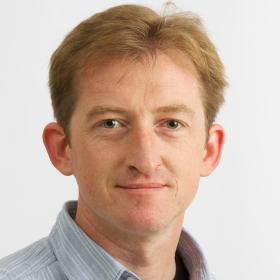Want to share your screen? See the person you're talking to? Contact us via digital library desk! We will be with you shortly.
Monday-Friday


Want to share your screen? See the person you're talking to? Contact us via digital library desk! We will be with you shortly.
Monday-Friday


As part of International Open Week 2024 (21-27 Oct.), Lib4RI hosted a panel discussion titled “Researcher-Driven Publishing: Is Diamond Open Access the Key?”
In his opening presentation, Torsten Hothorn shared the motivations behind Diamond Open Access (OA). He guided the audience through the history and progression of scientific publishing from the early days in the 17th century through to our modern digitized world. Following the OA Week's claim "Community over Commercialization", he pointed out how outstanding researchers drove the movement towards open science. Re-citing the iconic words of John F. Kennedy, he reminded the scientists that it is in their responsibility to shape the conditions in their environment:
"Ask not what the scientific community can do for you - ask what you can do for the scientific community."
With these words, the panel discussion was opened and the panelists from the four research institutes were introduced.
The discussion, led by moderator Dr. Christian Stamm (Deputy Director of Eawag), sparked a lively exchange amongst the panelists on the challenges and transformative potential of Diamond OA publishing.
Follow the presentation and discussion in the video below:
The panelists shared the challenges they face managing Diamond OA journals as a minority in today's competitive publishing landscape, from attracting and supporting high quality submissions to establishing a respected standing in the community. The discussion then moved towards the importance of drawing more attention to the values of outcome-oriented science and the roles of departments within institutes such as communication departments and libraries in supporting Diamond OA journals.
An agreement emerged on the need to change perceptions of quality in scientific journals, highlighting the importance of separating scientific evaluation from publishing. Notably, it was pointed out that as the share of Diamond OA journals in the publishing world has remained both constant and negligibly low in recent years, an increase is unfortunately not anticipated, unlike for hybrid journals.
In their concluding discussions, the panelists agreed that a significant disruption in the current publishing landscape, made within research communities and/or by research funding organizations, is essential for Diamond OA to play a larger role in advancing open access to valuable scientific research.